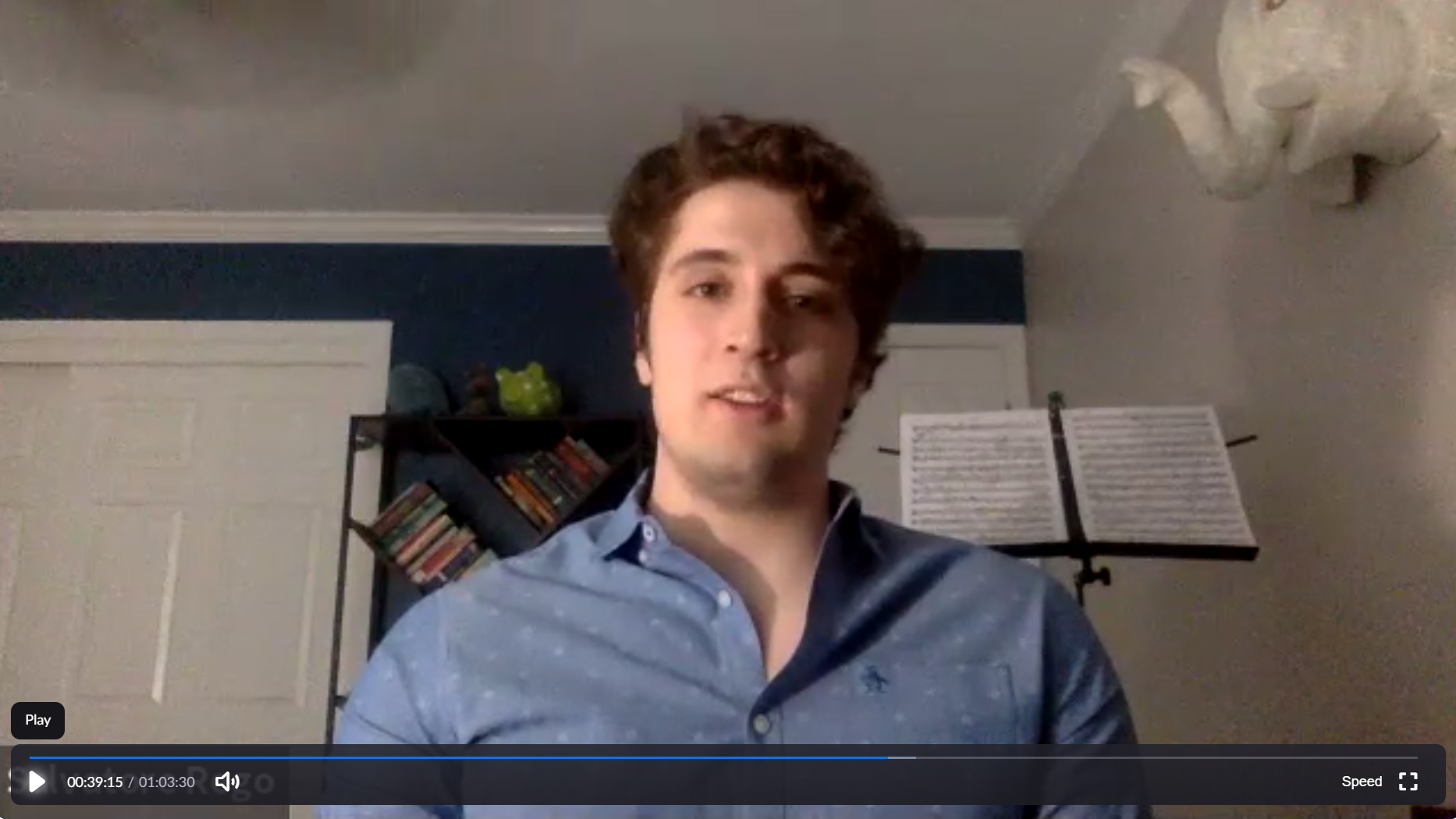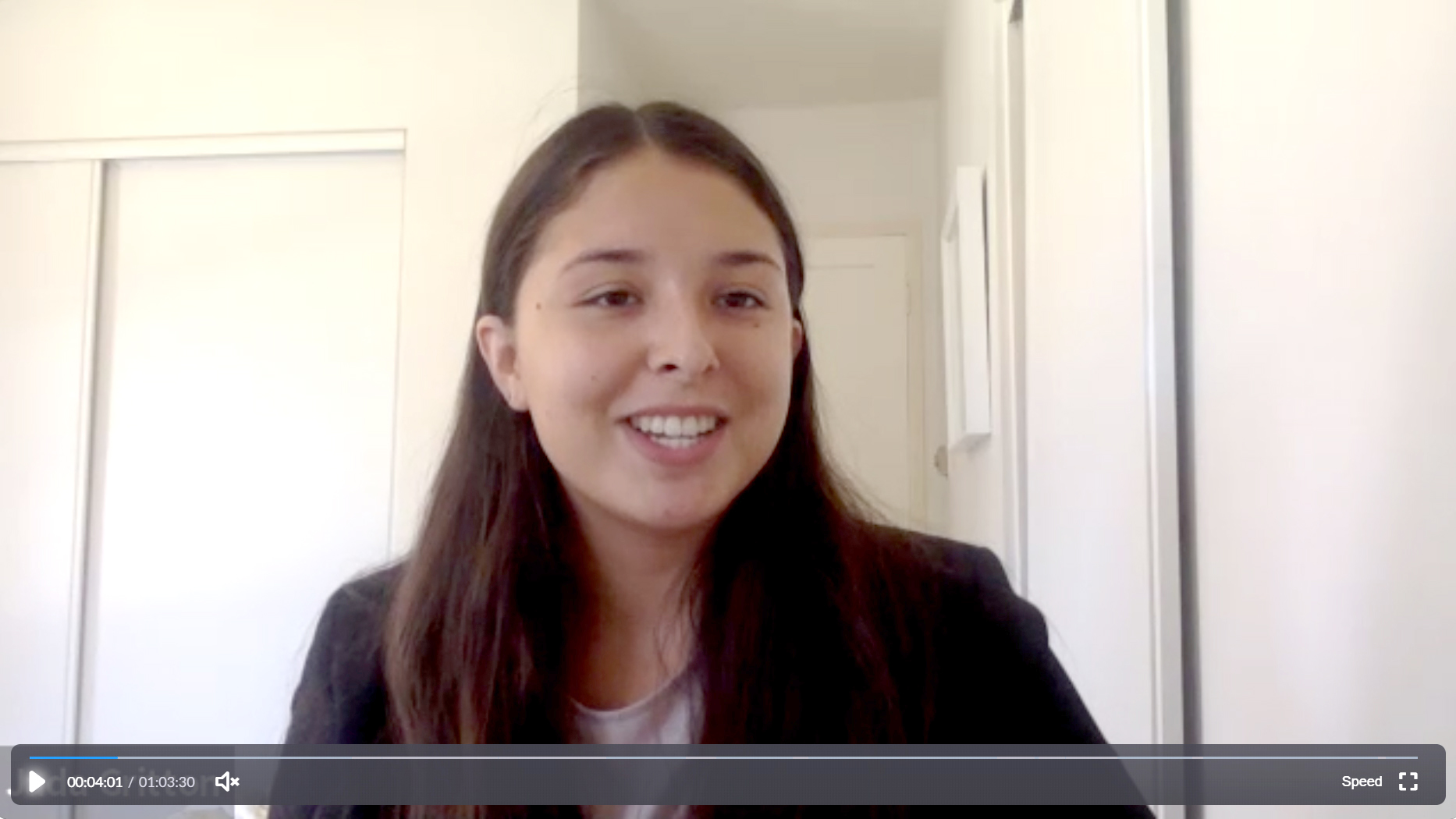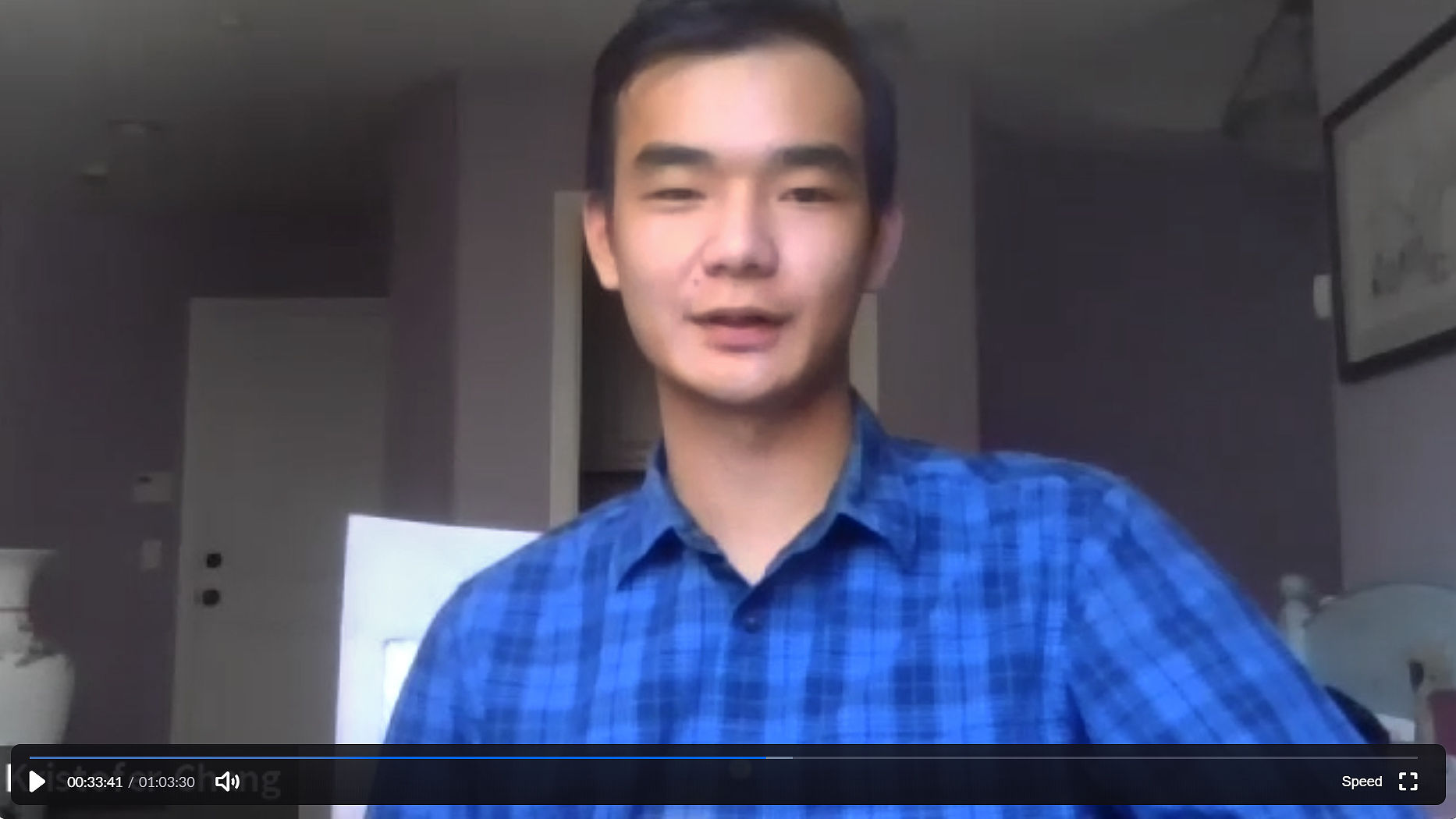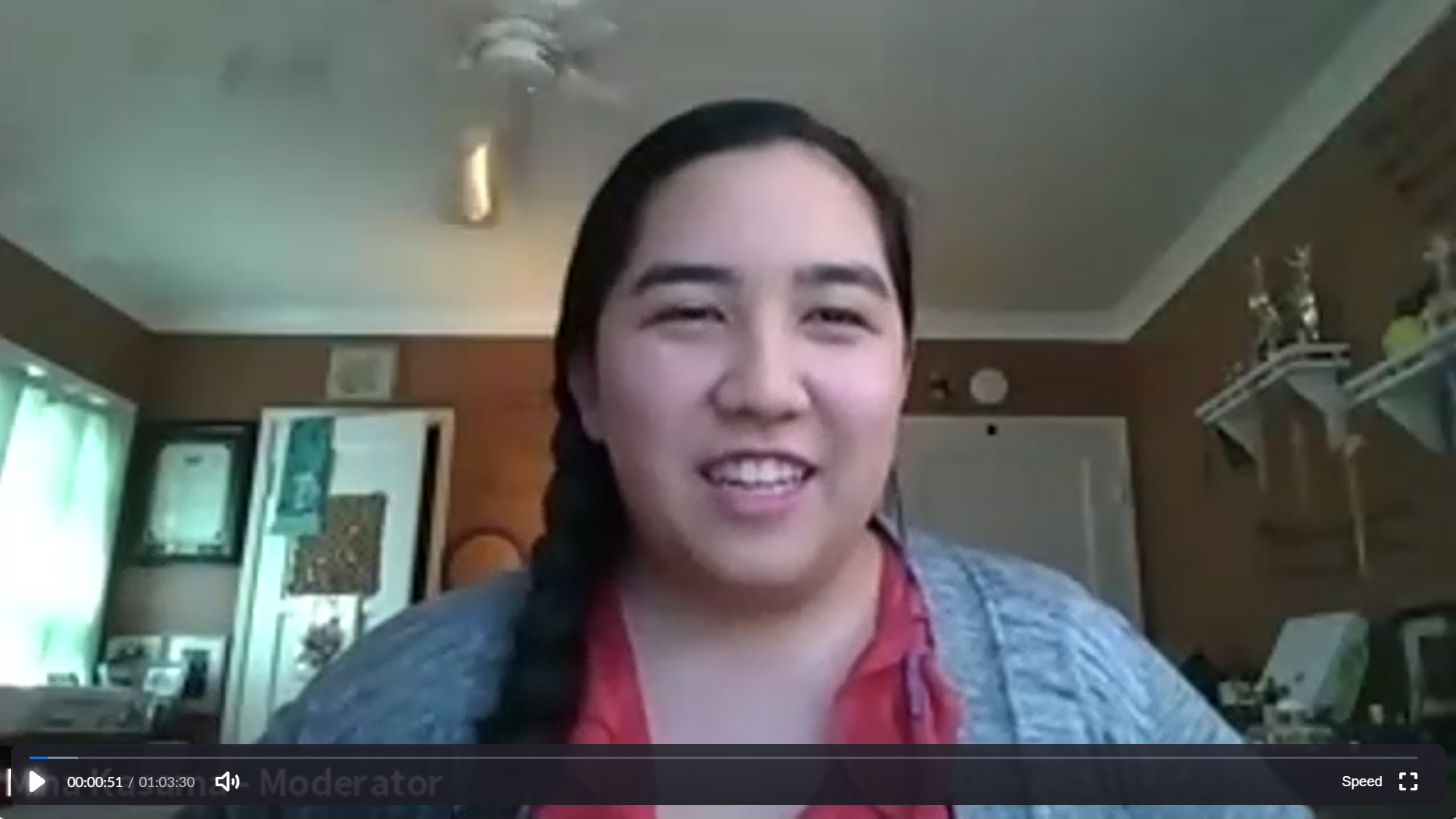College Applications: Clairbourn Alums Share Advice
Clairbourn School held a virtual panel in July 2020 featuring alums who offered advice on the college application process. Panelists included Kristofer Chang ‘16, who will be attending Harvey Mudd College, Jada Gritton ‘16, who will be attending the University of Pennsylvania, and Salvatore Rego ’15, now attending the College of William and Mary. The panel’s moderator was Mina Kasama, From Clairbourn’s Class of 2011, who attended Dalhousie University for her undergrad and is currently pursuing an MA in International Relations at American University.
Watch the recorded virtual panel here, or read the following notes from the meeting below .
The following notes are not an exact transcript, but summarize the sentiments and advice shared by the panelists.
How did you all chose what schools you wanted to apply to?
Sal – He has older siblings, and when they were touring schools he tagged along. By his junior year, due to his interest in soccer he created a list of 20 schools with good soccer programs. From there, he worked to narrow it down. He did that by visiting schools, going on campus walks, and taking tours. He found that, especially with the campus walks without a tour guide, he was able to tell quickly if he could see himself at a school for four years. Visiting helped the most.
His backup school lists were determined by their acceptance rates. He looked for schools that still had competitive academics to challenge him and also gave him a good chance to get in.
Regarding family pressure to pick a certain school, his top school just happened to match with his family’s preference. He advises, definitely take your family’s advice into account, since they’re likely paying for your education, but don’t take their preference as law because you’re the one that will be attending.
His backup school lists were determined by their acceptance rates. He looked for schools that still had competitive academics to challenge him and also gave him a good chance to get in.
Regarding family pressure to pick a certain school, his top school just happened to match with his family’s preference. He advises, definitely take your family’s advice into account, since they’re likely paying for your education, but don’t take their preference as law because you’re the one that will be attending.

Panelist Salvatore Rego, from Clairbourn’s Class of 2015, now attends the College of William and Mary.
Jada – She started her list based on her requirements for a desirable college. Her top priority was schools that were located on the east coast with a city setting. Her second tier of criteria was school size, academic rigor, the social scene, and strong school pride. That resulted in a list of 17 schools which then got narrowed down by interviewing students about their experience and asking about a typical day. When deciding on a safety school, she looked at their test scores and GPA. Regarding her family being on board with the schools she was looking at, if her parents didn’t understand why a school was on her list, she just talked to them to build an understanding.

Panelist Jada Gritton, from Clairbourn’s Class of 2016, will attend the University of Pennsylvania.
Kristofer – He started with a list of characteristics about himself that he wanted to cultivate and then tried to find a college that matched his nature. He cut from the list colleges that weren’t his style, and then narrowed down the remainder to schools that showed evidence they would be a suitable fit.
Part of his process to determine fit involved looking at application essays from the current year or previous years. He feels that if you have no enjoyment in doing those essays, the school is probably not a good fit for you. For example, he discovered that the University of Chicago is known for its odd essay requests. That can turn off some people, but it also can intrigue the creative minded. He also advises that you don’t want to compromise your preferred major when choosing a backup school. Backup schools should be aligned with your interests. To further determine best school fit, he took a summer course in advance at the school he wanted to attend to get a sense of classmate support, community, and the interaction with teachers.
His family didn’t pressure him to apply to certain schools. They just asked him to have concrete reasons as to why he was applying to each one, and he found that they accepted his reasons as long as he did the research.

Panelist Kristofer Chang, from Clairbourn’s Class of 2016, will attend Harvey Mudd College.
How many school were on your short list. How did you determine that?
Jada and Sal both went for Early Decision applications. Because both they got in to their Early Decision schools, they didn’t have to apply beyond their first choice. Kristopher applied to only two schools, but he originally planned on applying to 6.
In your opinion, what is your biggest strength that helped you get into your college?
Sal – His sense of humor is his biggest strength. He got to show his humor in his essay and interview. He tried to make a connection with the interviewer to break down walls in the first few minutes.
Kristofer – His ability to try new things and his record of helping people empowered his application and he feels that is his biggest strength. When he was in his junior and senior year of high school, he managed the volleyball team at Flintridge Prep. It was something he loved to do, and this passion created ample subject matter for his essays and interviews.
Jada – Her determination, her record of doing what she says she is going to do, was the main strength she put on display in her essays.
When did you start preparing for the ACT and SAT? How important do you think these tests are since standardized tests are on shaky ground in the era of COVID-19?
Sal – He took practice tests which helped him get used to the long form test-taking process. He found that the test is still well valued where he applied. He advises high school students to take the time to try to do well on those tests.
Jada – Tests are just one part of the whole process, and she feels that schools are putting less emphasis on them due to COVID-19. But, she still took both tests and prepared a lot because she feels that she is not the best test-taker without lots of preparation.
Kristofer – He prepared for three months. He took a practice tests every two weeks. Those gave him a solid understanding of the math and the English he needed to sharpen to do well on the tests. Both tests he thinks will wane in popularity.
When did you start writing your essays and how important do you think the essays are?
Sal – He started his essays during his sophomore year, and he was glad he did them early so he didn’t have to do it during the summer of his junior year. He thinks the essays are VERY important. Schools are looking at a lot of kids with similar GPAs and test scores, so he says you have to show why you are unique.
Jada – She says the essay is the most important part. She advises that they show the admissions officer what type of person you are beyond test scores. Don’t write your essays senior year. Do them the year before, otherwise you’ll be too stressed.
Kristofer – He started and finished his Common App Essay (sent to a wide group of schools) early and started supplemental essays (tailored to individual schools) the summer before applications were due.
What are your tips for writing a good college admissions essay?
Sal – He advises try to be yourself, find ways to entertain the reader, think of how you will stand out in your essay. He wrote about his spirit animal being the rat and how that realization changed him. Be sure to write about what you think is fun or interesting.
Jada – She feels you must make sure your voice shines through. Make sure you’re writing about your personal passions instead of what you think a college admissions officer wants to hear.
Kristofer – He feels that being yourself in the essays is the key part. He wrote about a sock puppet show he created to demonstrate socialism and that unusual subject made him memorable. He also advises that while you are showing your essay to parents and teachers to get their input, make sure you can trust the people giving you advice. Make sure your voice doesn’t get jumbled after applying their advice.
Some schools have an interview and some don’t. How important is the interview in terms of the entire application process and how did you prepare for it?
Sal – To him, the interview was like the cherry on top of a sundae, but not the most important part. He advises focusing on the other aspects of the application process which weigh more. He’s comfortable talking with people, but during the interview he was still pretty nervous. So be prepared to be a little nervous, and for him, humor broke the ice and made the meeting easier.
Jada – She does not think the interview was the most important part of the process. To prepare, she looked up on YouTube some common college interview questions and she practiced a week in advance with her parents.
Kristofer – He has a flipped perspective on what the interview is for. He feels the important part of the interview meeting is that you get to go and check them out. It is your chance to get a one-on-one meeting with someone from the school who can answer your questions. It’s not them looking at you…it is you taking an opportunity to learn more about the school. He also prepared by running through potential questions with his parents and his questions covered experiences he hoped would happen at the school.
Did any of you hire a college application service?
Sal – He utilized his high school college counselor. He saw her extra times beyond the required meetings and talking to her helped a lot. He also briefly worked with test prep companies but that didn’t help him too much because of his learning style.
Jada – She took test prep classes and heavily talked with her college counselors.
Kristofer – He strongly values taking practice tests. He didn’t feel he needed a college counselor. What he needed more was people who would sit with him and help him to craft his message.
What advice would you give to students who aren’t good test-takers?
Jada – She advises that high-schoolers take practice tests a lot. The SAT and ACT are about test taking strategies…not so much content. Familiarity will help you spot answers that are trying to trap you into picking them.
Kristofer – He says that if you’re not an exceptional test-taker, then work on the other sections of your application harder. Prepare to give an excellent interview and prepare to write a stellar essay.
When touring a school vs. doing website research, were there any differences you noted? How important was the on-site visit?
Sal – He feels that on-site visits are very important. Every website shows the best qualities the school wants you to see. Touring in person can give you more insight as to the full reality of the school.
Jada – Touring in person helped her to cross schools of her list. She feels that a school’s website is only showing their best image, so to get a better idea of reality, she looked up each school on YouTube to find “a day in the life of a student at ______ school” videos.
Kristofer – He feels that all schools sound the same on a website, so it is very important to tour and interact with the actual school community. He visited a lot of schools with high hopes, but then discovered many of them didn’t feel right.
If you had a chance to go back in time and change one thing about how you prepared to apply to college, what would you change?
Sal – He wished he had worked harder to raise his test scores just a bit.
Jada – She wished she had prepared more for the SAT subject test.
Kristofer – He wishes he had looked at applications earlier to catch the unrequired items he could have submitted. There were things he would have gone for, like participating in a national math test competition. Some schools ask for those scores even though they are not required.
Did any of you do overnight school visits?
Sal – He did some to look into the soccer programs at a couple of different schools, but if he wasn’t looking to be recruited he probably wouldn’t have had the chance to do an overnight. He thinks they put them in the nicest dorms to sell the school. He didn’t like that he didn’t get to room with real students…just another student attending the soccer camp.
Did COVID-19 conditions influence your choice or consideration of where you would go to school?
Sal – He was a year ahead and beat it, so it didn’t affect him.
Kristofer – His deadlines happened before quarantine, so COVID-19 conditions weren’t considered.
Outside of academics, were there clubs or extracurriculars that were important for you to have?
Sal – It was important for him to be at a school with D1 sports so he could watch events even if he couldn’t play. He loves higher levels of competition. He didn’t consider clubs at all.
Jada – She looked at some clubs, but most schools have all the same clubs. It was more important to her to look at sports and school spirit.
Kristofer – He mainly looked at academic facilities for the first round of his college searches. Then he looked at school community and community support.
Did each of you know what you wanted to major in when you were applying to schools?
Sal – He was sure he would major in physics. The top schools on his list coincidentally all had strong physics programs. But he advises that if you don’t know what your major will be, don’t worry about it because the majority of students have no idea what they will study.
Jada – She knew her major would be between econ and political science. All of the schools she applied to had to have those two majors.
Kristofer – He advises that if you want to major in STEM you need to take a very close look at the school’s offerings. Most schools will have the rest of the typical majors. He chose a STEM-oriented liberal arts school. Overall, you should be fine even if you don’t have an intended major.
What are the factors in choosing to apply Early Decision / Early Action?
Sal – He explains that Early Decision is binding. You’re making an agreement to go to that school if you get in. By contrast, applying Early Action is not binding. If they accept you, you have time to let the school know if you accept their offer up until the normal reply date. Not everyone is prepared to apply with Early Action, so applying that way that helps to beat out other applicants, and it is good to do if you know where you want to go.
Jada – She feels that if you really like a school and you go ahead and apply with Early Decision, the advantage is that it can up your acceptance rate by 10%, but you have to be 100% sure you want to go there because Early Decision is binding.
Kristofer – He advises awareness of Early Decision Round 2. This is a binding option and fewer students are accepted, but it buys you more time and it can still help you beat out some of your competitors at the school you want to attend. If you wait, the school will be more full.
Money is always a consideration. Did any of you go after scholarships?
Sal – He would have gone for an athletic scholarships if he had the grades to do so.
Jada – She didn’t apply for scholarships, but if she had it would have been for volleyball. In the end, the school she wanted to attend didn’t give volleyball scholarships.
Kristofer – He didn’t apply for scholarships, but he says it doesn’t hurt to try for one, and if you get it, it is a big bonus! If you’re trying to get into a school and you’re banking on a scholarship, you should not apply with Early Decision. Apply regularly or with Early Action if you need to go for a scholarship.
How many schools should you apply to…a lot of schools or just a curated handful? Should you aim to have a top 3 list?
Sal – He advises casting a smaller net. Try to apply to a couple of schools you know you will get into in addition to the Ivy’s to protect your options. A smaller list is better because it allows you to really focus on the essays and selling yourself.
Jada – She believes in starting with a longer list of schools. Then seriously target about four and have an additional two as safety schools.
Kristofer – He threw three small nets. The first net included his Early Decision schools that he really wanted to get into. Next was the Early Decision Round 2 schools, and finally, he has a small list of backup schools.
Did you consider schools with study abroad programs?
Sal – He says, not at all! Unless it really helps your major, just focus on the school itself.
Jada – All of the schools she applied to had abroad programs, but it wasn’t a deciding factor.
Kristofer – He feels that abroad programs are just another school resource, but not a significant reason to apply unless being abroad is really your thing.
Did any of you consider non-US schools?
Sal – His sister went to St. Andrews in Scotland, and he was tempted to consider them because they have a strong physics program. But, in the end he decided on US-only schools because he feels that it’s a hassle to travel back and forth and a hassle to transport dorm items.
Jada – She didn’t consider it, although she had classmates that were looking at non-US schools.
Kristofer – He wanted schools that he could easily visit with a culture he could easily understand. He didn’t want to fly around the world to look at schools. That was his personal preference.
How important or not important was financial aid in your college process?
Sal – He says it was not an important factor to him, but depending on your situation, it can be a deciding factor.
Jada – She recommends talking to your parents before you start to apply and discuss college costs to know what is expected and achievable.
Kristofer – Most colleges will have financial aid calculators so you can predict in advance what you’d get in aid before you would apply. He advises talking to your parents about it, or whoever is paying for your college. His school offers merit scholarships. Without having to apply, he got one of them. It is important to know your options for paying for school.
How did the Clairbourn School experience help you to prepare for college?
Sal – Clairbourn helped him get comfortable with being in new circumstances and situations. He moved to Clairbourn for 8th grade. Although it was really different from the East Coast, and even though he didn’t want to move, he learned he could have a happy experience in the face of great change.
Jada – She feels that Clairbourn helped her to become a leader and she carried those skills into high school.
Kristofer – He says that Clairbourn helped him with efficient habits, time-management, exposure to a variety of courses, and skills to manage lots of homework. He knows how to budget his time, and that helped him in high school and with applying to high school. Clairbourn also helps students to try lots of new things. You don’t get the same variety in high school, so Clairbourn students are ahead of the game because they’ve already had a chance to explore what they like.
What three take-away pieces of advice would you give to future college applicants?
Sal – 1. Be yourself. Admissions officers read a lot of essays, so be authentic. Make them see something interesting about you. 2. Try to relax. Realize that you will end up where you belong and that you will be happy. 3. Try to enjoy the college-search process and find a place that resonates with you.
Jada – 1. While searching and applying, try to have one place in your house where you don’t talk about college so you can relieve the constant pressure of the subject. 2. Try not to pay attention to what others are doing because everyone’s journey is different. 3. Be yourself. Try to make your voice shine through in the application.
Kristofer – 1. Don’t try to mold yourself to fit the school. Be you! Find the school that fits you. 2. Have a planner or schedule keeper because there are so many deadlines for scholarships and deadlines for ED, EDA, and ED2. 3. Find people you trust to give opinions and advice on tours, essays, and finding your voice for your submission materials.

Clairbourn thanks Panel Moderator Mina Kasama, from Clairbourn’s Class of 2011, who attended Dalhousie University for her undergrad and is currently pursuing an MA in International Relations at American University.
Private School Education for Preschool, Kindergarten, Elementary School, & Middle School Grades - Serving Families in the Pasadena Area and Surrounding Cities
Clairbourn is a 501(c)3 charitable organization. (K-12 Private Schools), Child Care Facility license # 191500903












